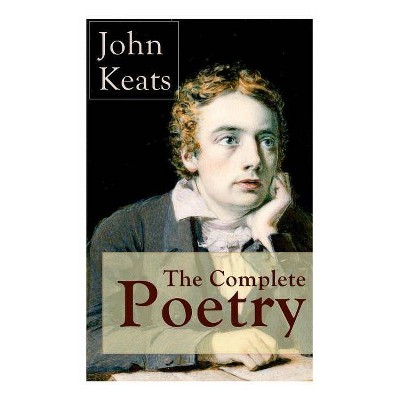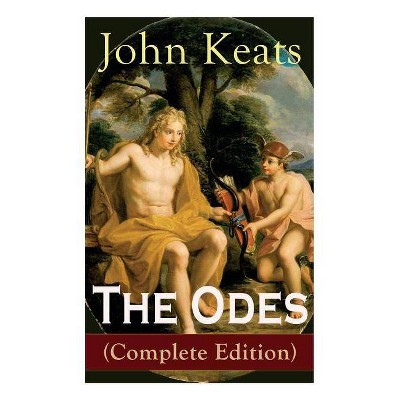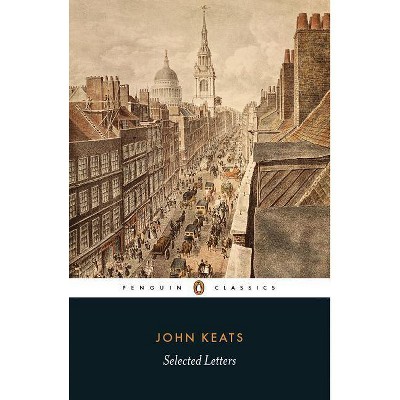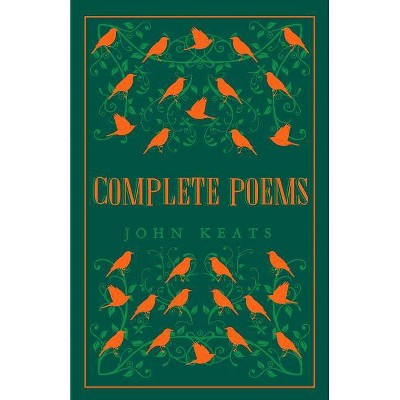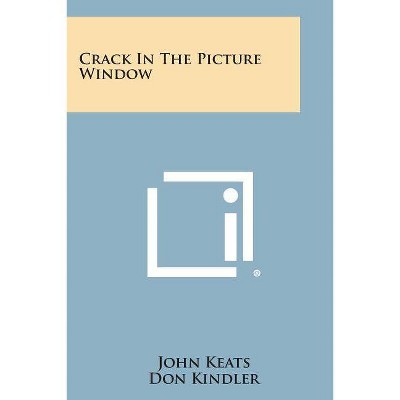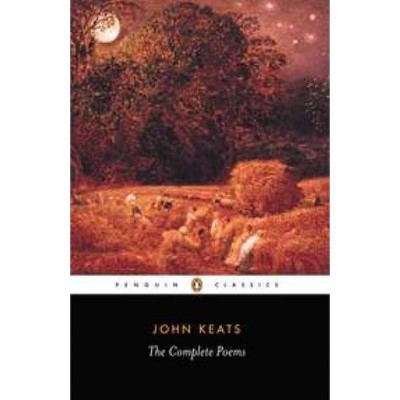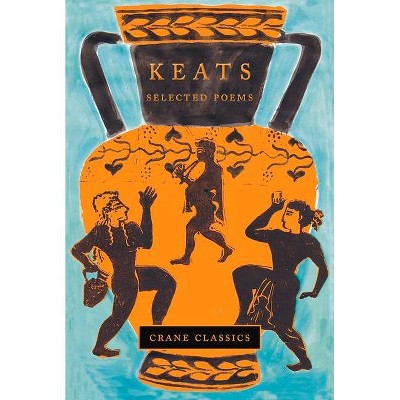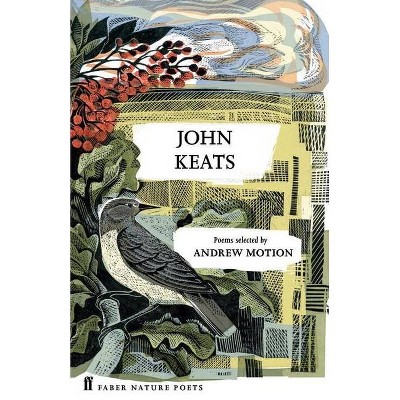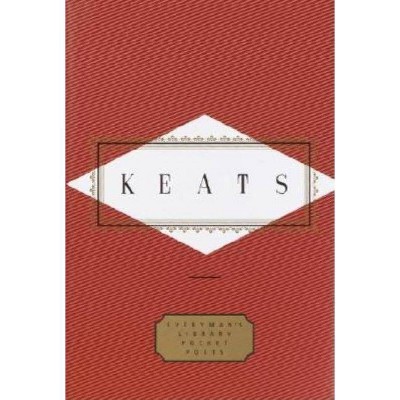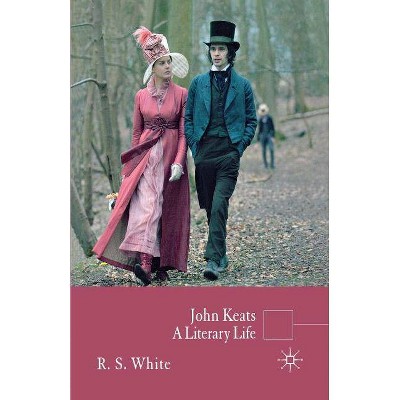The 64 Sonnets - by John Keats (Paperback)
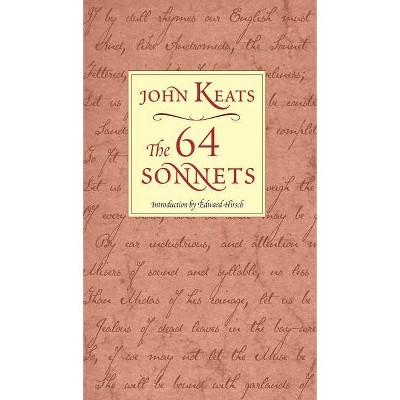
Similar Products
Products of same category from the store
AllProduct info
<p/><br></br><p><b> About the Book </b></p></br></br>Keats's sonnets in a stand-alone edition for the first time<p/><br></br><p><b> Book Synopsis </b></p></br></br><p>John Keats is among the greatest English poets. (He himself imagined he would be counted so!) For some readers, his odes define the essence of poetry. We also discover in Keats a great composer of sonnets. Here, for the first time published in a separate edition, are all sixty-four sonnets, the first written when Keats was eighteen, the last just five years later. Reading these poems, you'll experience the wonder of Keats's growing poetic powers; you'll feel the shock of recognition when you come upon the great ones. Presented with an introduction by Edward Hirsch, and accompanying explanatory notes, the sonnets stand out as a triumph of their own.</p><p>Between 1814 and 1819, John Keats wrote sixty-four sonnets. He was eighteen years old when he composed his first sonnet; he was turning twenty-four when he completed his last one. He restlessly experimented with the fourteen-line form and used it to plunge into (and explore) his emotional depths. You can sit down and read these poems in a single night and have a complete Keatsian experience--he breathes close and offers himself to us; his presence is near. You can also read them throughout your adulthood and never really get to the bottom of them. These short, durable poems are filled with the mysteries of poetry.</p><p>In the sonnets, Keats conveys the range of his interests, his concerns, his attachments, his obsessions. Some are light and improvisatory, tossed off in fifteen minutes, a moment's thought. Some are polemics, or romantic period pieces; others are brooding testaments or compulsive outpourings, which seem to expand on the page. These sonnets are replete with a sensuous feeling for nature--'The poetry of earth is never dead'--that looks back to Wordsworth and forward to Frost. They also luxuriate in the spaces of imagination--'Much have I travell'd in the realms of gold'--and trigger the daydreaming capacities of the mind. --from the Introduction by Edward Hirsch</p><p><b>Edward Hirsch</b> has published six books of poems: <i>For the Sleepwalkers</i> (1981), <i>Wild Gratitude</i> (1986), which won the National Book Critics Circle Award, <i>The Night Parade</i> (1989), <i>Earthly Measures</i> (1994), <i>On Love</i> (1998), and <i>Lay Back the Darkness</i> (2003). He has also written three prose books: <i>How to Read a Poem and Fall in Love with Poetry</i> (1999), a national bestseller, <i>Responsive Reading</i> (1999), and <i>The Demon and the Angel: Searching for the Source of Artistic Inspiration</i> (2002). He writes a weekly column on poetry for the <i>Washington Post Book World</i>. He has received the Prix de Rome, a Guggenheim Fellowship, the American Academy of Arts and Letters Award for Literature, and a MacArthur Fellowship. He taught for eighteen years at the University of Houston, and is now the fourth president of the John Simon Guggenheim Memorial Foundation.</p><br><p/><br></br><p><b> About the Author </b></p></br></br><p><b>Edward Hirsch</b> has published six books of poems: <i>For the Sleepwalkers</i> (1981), <i>Wild Gratitude</i> (1986), which won the National Book Critics Circle Award, <i>The Night Parade</i> (1989), <i>Earthly Measures</i> (1994), <i>On Love</i> (1998), and <i>Lay Back the Darkness</i> (2003). He has also written three prose books: <i>How to Read a Poem and Fall in Love with Poetry</i> (1999), a national bestseller, <i>Responsive Reading</i> (1999), and <i>The Demon and the Angel: Searching for the Source of Artistic Inspiration</i> (2002). He writes a weekly column on poetry for the <i>Washington Post Book World</i>. He has received the Prix de Rome, a Guggenheim Fellowship, the American Academy of Arts and Letters Award for Literature, and a MacArthur Fellowship. He taught for eighteen years at the University of Houston, and is now the fourth president of the John Simon Guggenheim Memorial Foundation.</p>
Price History
Price Archive shows prices from various stores, lets you see history and find the cheapest. There is no actual sale on the website. For all support, inquiry and suggestion messagescommunication@pricearchive.us
